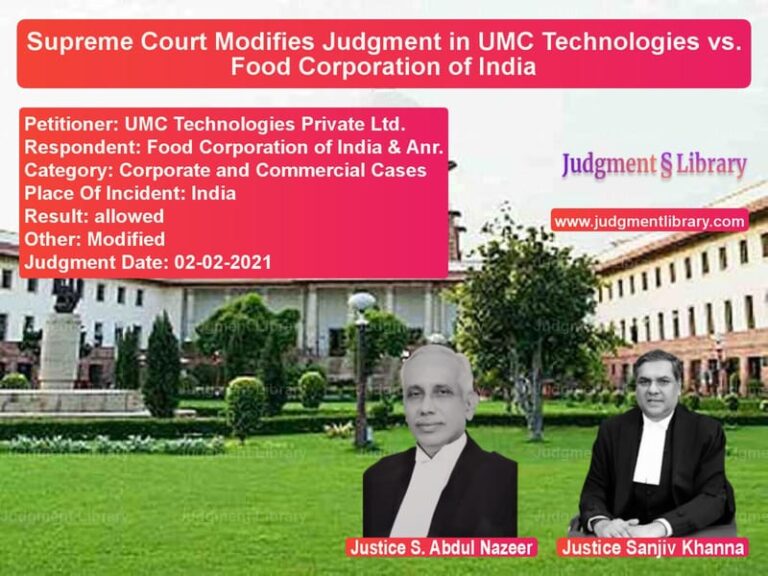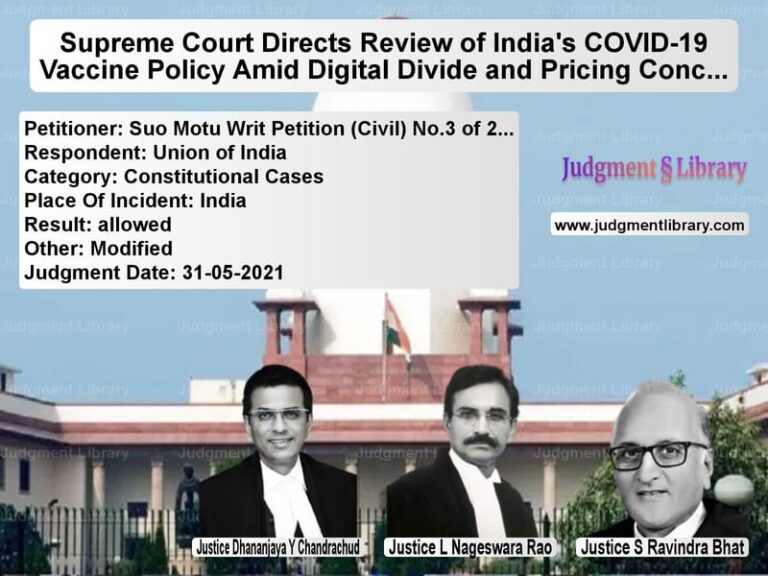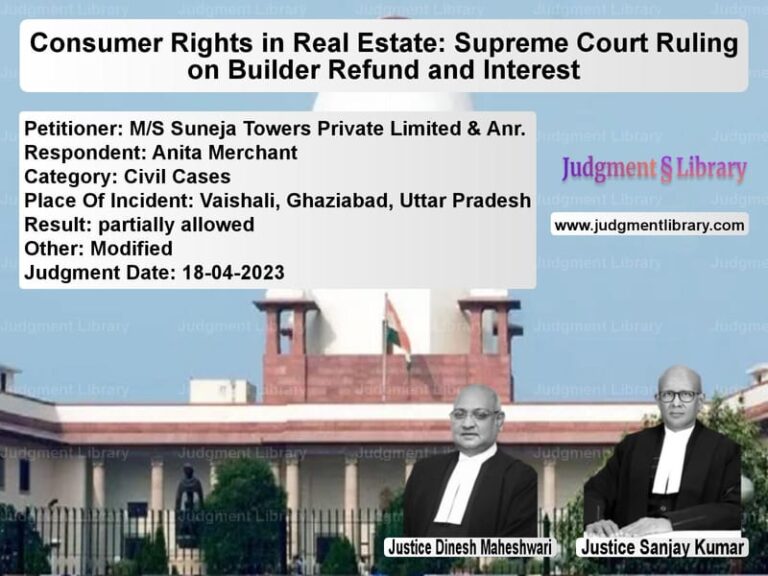Judicial Appointments and Quota Rules: Supreme Court Upholds Merit-Based Selection
The case of Srikant Roy & Ors. vs. State of Jharkhand & Ors. is a landmark judgment delivered by the Supreme Court of India on November 16, 2016. This case involves the recruitment of Additional District Judges (ADJs) in Jharkhand and examines the legal principles governing judicial appointments, including the application of reservation quotas and the eligibility of Fast Track Court judges for regularization. The judgment clarifies critical aspects of recruitment procedures and upholds the principles of fairness and merit-based selection.
Background of the Case
The dispute arose from the selection process initiated to fill 34 posts of Additional District Judges through the Limited Competitive Examination and 18 posts through promotion based on merit-cum-seniority. This recruitment process was governed by the Jharkhand Superior Judicial Service Rules, which prescribed a 50:25:25 ratio for filling up judicial vacancies:
- 50% through seniority-based promotion among subordinate judges.
- 25% through a Limited Competitive Examination for subordinate judges.
- 25% through direct recruitment from the Bar.
The recruitment process was challenged by a group of ad-hoc judges who had been appointed to Fast Track Courts (FTCs) in the early 2000s. These judges sought permanent absorption into the judicial system, arguing that their experience in FTCs should be considered equivalent to regular judicial service. The Jharkhand High Court ruled in their favor, setting aside the recruitment process, which prompted an appeal to the Supreme Court.
Key Legal Issues Considered
- Did the recruitment process comply with the 50:25:25 quota system mandated by the Jharkhand Superior Judicial Service Rules?
- Could ad-hoc Fast Track Court judges claim a legal right to permanent absorption?
- Was the High Court correct in setting aside the recruitment process?
- Should anticipated vacancies be considered while applying the quota system?
Arguments Presented
Appellants (State of Jharkhand and High Court Administration) Arguments:
- The recruitment process was conducted in accordance with the amended recruitment rules.
- The recruitment process strictly adhered to the 50:25:25 ratio for appointments.
- Fast Track Court judges were appointed on an ad-hoc and temporary basis, and there was no legal provision for their automatic absorption.
- The Jharkhand High Court misinterpreted the vacancy distribution and applied the quota system retrospectively.
Respondents (Ad-hoc Fast Track Court Judges) Arguments:
- The recruitment process violated the prescribed quota system and disproportionately favored certain categories.
- Their experience as Fast Track Court judges should qualify them for direct appointment.
- The quota system should be strictly applied to ensure fair representation for all eligible candidates.
Supreme Court’s Observations
The Supreme Court examined the Jharkhand Superior Judicial Service Rules and the judgment of the High Court. The Court emphasized that:
“Appointments must be made based on sanctioned posts, and the reservation quota should apply to existing vacancies rather than anticipated ones.”
The Court found that:
- The High Court misapplied the law by modifying the vacancy distribution retroactively.
- The Jharkhand government and the High Court administration had correctly followed the prescribed recruitment procedure.
- Fast Track Court judges did not have an automatic right to be absorbed into the regular judicial service.
- The recruitment process was valid and conducted in accordance with merit-based selection principles.
Final Judgment
The Supreme Court ruled as follows:
- The Jharkhand High Court’s decision quashing the recruitment process was set aside.
- The recruitment process for Additional District Judges was reinstated and held to be legally valid.
- Fast Track Court judges could not claim automatic absorption and must go through the prescribed selection process.
- The appeal was allowed, restoring the selection process.
The appeal was allowed with no order as to costs.
Impact of the Judgment
This ruling has far-reaching implications for judicial appointments:
- It clarifies that reservation quotas must be applied to sanctioned posts rather than projected vacancies.
- It upholds the principle that merit-based selection should be the cornerstone of judicial recruitment.
- It affirms that Fast Track Court judges cannot bypass regular recruitment procedures for permanent appointments.
- It ensures that judicial appointments remain fair, transparent, and in compliance with established laws.
Conclusion
The Supreme Court’s decision in Srikant Roy & Ors. vs. State of Jharkhand & Ors. is a significant ruling that upholds the integrity of the judicial recruitment process. By ensuring that reservation quotas are correctly applied and preventing the undue regularization of ad-hoc judges, the judgment reinforces the principles of merit-based selection and transparency in judicial appointments.
Don’t miss out on the full details! Download the complete judgment in PDF format below and gain valuable insights instantly!
Download Judgment: Srikant Roy & Ors. vs State of Jharkhand & Supreme Court of India Judgment Dated 16-11-2016.pdf
Direct Downlaod Judgment: Direct downlaod this Judgment
See all petitions in Promotion Cases
See all petitions in Recruitment Policies
See all petitions in Public Sector Employees
See all petitions in Judgment by T.S. Thakur
See all petitions in Judgment by A M Khanwilkar
See all petitions in Judgment by Dhananjaya Y Chandrachud
See all petitions in allowed
See all petitions in supreme court of India judgments November 2016
See all petitions in 2016 judgments
See all posts in Service Matters Category
See all allowed petitions in Service Matters Category
See all Dismissed petitions in Service Matters Category
See all partially allowed petitions in Service Matters Category







